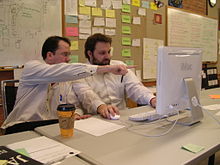Pending patent reform unlikely to untangle software litigation mess

A long-awaited patent-system reform bill is on its way to becoming the law of the land. The Leahy-Smith “America Invents Act” (H.R. 1249) was recently approved in a US Senate vote, and awaits the president's signature. (UPDATE 9/16/2011: The bill has been signed into law.)
Patents have long been both the bedrock and bane of software innovation, ensuring that creators will be properly acknowledged and potentially compensated for their hard work. However, the US Patent and Trademark Office’s current mandate, as it exists, has been a mess, resulting in endless wars between companies (lately, between Google and Oracle or Google and Apple), as well as the rise of companies that seem to have no other reason for existence other than as “patent trolls.” Witness the long, torturous saga of the SCO Group, which went after major Linux providers and users for a cut of what it claimed was it just due of licensing revenue.
As Herb Wamsley, executive director of the Intellectual Property Owners Association, once so eloquently put it: The U.S. Patent and Trademark Office is underfunded, understaffed, and incapable of handling the growing wave of technologically complex patent applications flooding in. “In sum, the system is overwhelmed, underfunded and grinding to a halt.” When the system breaks down, in come the lawyers.
Will the proposed changes in the patent system help to stimulate greater software innovation, or put more shackles on the innovation process?
The most obvious change will be the awarding of patents to the “first to file” applicant for a new idea, versus the previous, more amorphous policy of “first to invent.” This change, it is hoped, will being more clarity to who rightfully holds a patent, and make litigation less necessary. The bill also also give the US Patent and Trademark Office the option to hire more examiners, possibly by charging applicants a fast-track fee.
However, there are also fears that larger companies, with their armies of attorneys with the resources to make speedy patent filings in overwhelming numbers, will crowd out small startups and companies. Plus, companies will be able to challenge patents after they are approved.
To address small business concerns, the bill also includes a provision that establishes a “Patent Ombudsman Program” that will provide support and services relating to patent filings to small business concerns and independent inventors.
Still, there are reservations about the new law -- and a feeling it won't do much to quell the ongoing software patent wars. As Ed Black, president and chief executive of the Computer & Communications Industry Association (CCIA), put it to AFP: The reforms don't "effectively address the real serious problems of our patent system.... The bill tinkers in various ways -- some things are good, some things are bad -- but it's not a gamechanger... too many patents issued that are simply not high-quality patents."
Legal eagle Dennis Crouch, for one, warns that there will be plenty of new work for lawyers: “The law of patentability will be more complicated and unstable for the next decade as we go through the transition.”
The issues at stake, as Crouch says, include the need to “directly assist the US Patent and Trademark Office (USPTO) with issuing patents in (1) a timely manner; (2) for only deserving inventions; and (3) that concretely and understandably define the scope of the patent right.” While the bill doesn’t tackle these issues head-on, making more funding available may help alleviate some of the backlog that puts patent applications and disputes in limbo.
And, he adds, the reforms will help deliver more expediency and harmonization to the US patent system at a time when technology advances are coming in from all over the globe: “With harmonization, the USPTO has the potential of working more closely with worldwide patent agencies to improve the patent prosecution process.”
In the AFP report, Roger Kay of Endpoint Technologies Associates has even a better idea than simply tinkering with the system: Do away with software patents altogether. "People patent any old thing and they repatent things that are already patented. Really we should be going 180 degrees in the other direction and saying 'How about no patents for software?'"
(Photo credit: Wikipedia)